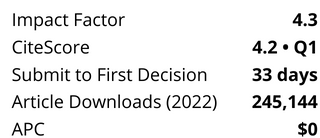Abstract
Groundwater plays an important role in water supply and economic development for Yantai city, China. However, the groundwater quality has degraded due to the increase and expansion of agricultural and industrial development. It is urgent to acquire groundwater characteristics and distinguish impacts of natural factors and anthropogenic activities on the groundwater quality. Forty-six groundwater samples collected from different wells showed a great variation of chemical components across the study area. Most wells with higher total dissolved solids, total hardness, K+, Na+, Ca2+, Mg2+, Cl− and SO42− concentrations were located relatively close to the coastal zone. The factor analysis (FA) and hierarchical cluster analysis results displayed that seawater intrusion was the primary mechanism controlling the groundwater quality in the coastal areas. A three-factor model was proposed based on the FA and explained over 85% of the total groundwater quality variation: Factor 1, the seawater intrusion; Factor 2, the water–rock interaction and Factor 3 (NO3−), the human activities. Furthermore, the geographical maps of the factor scores clearly described the spatial distributions of wells affected by natural processes or human activities. The study indicated that both natural processes and human activities are the major factors affecting the chemical compositions of groundwater.




%20cropped.png?versionId=5947)